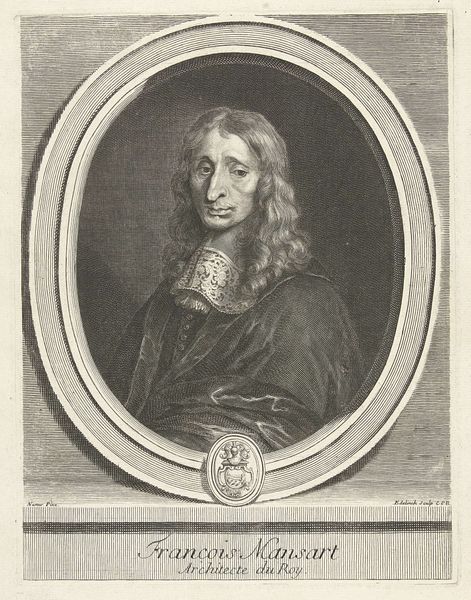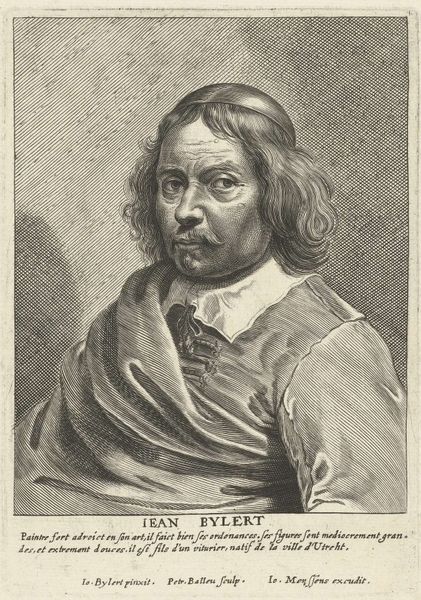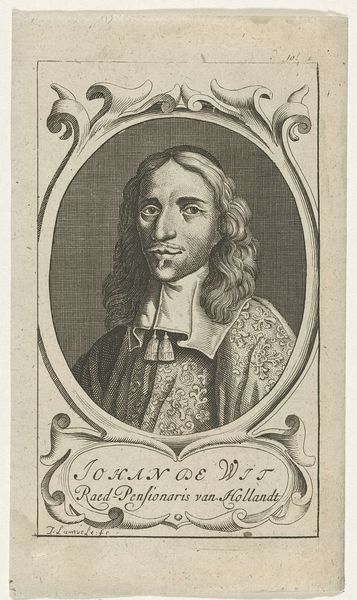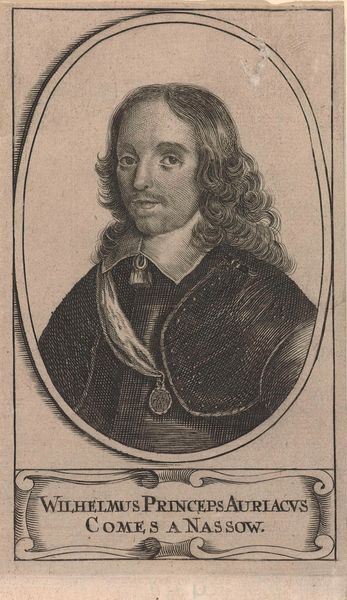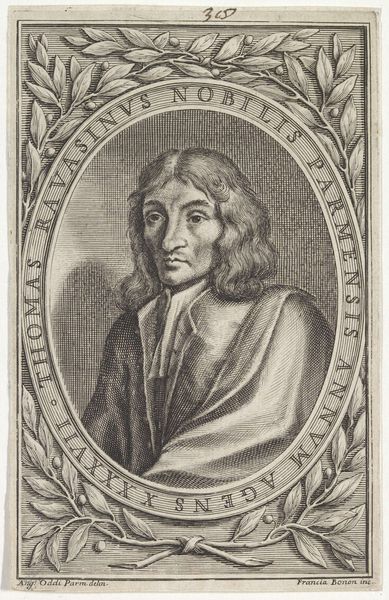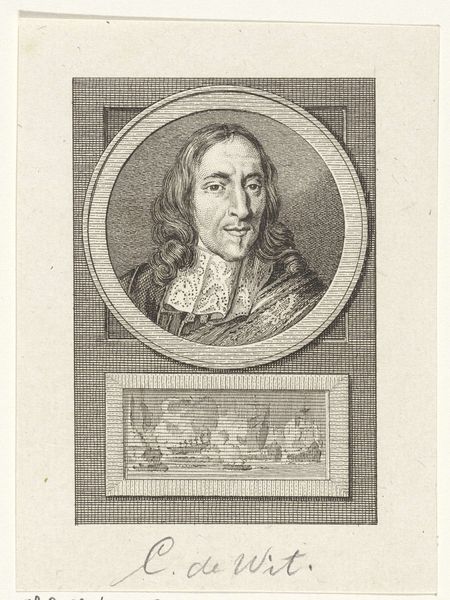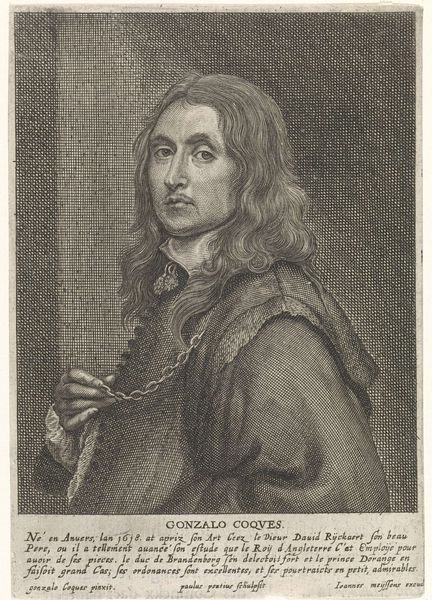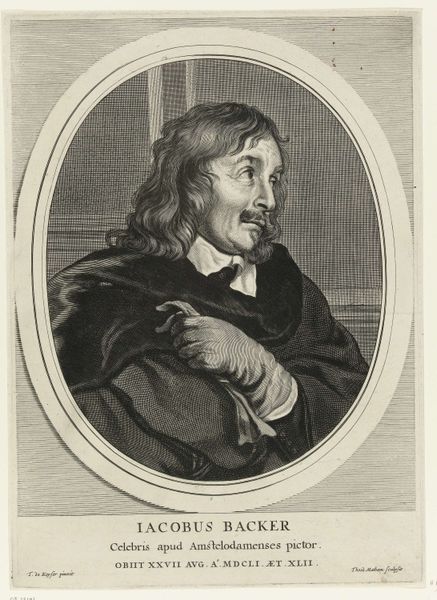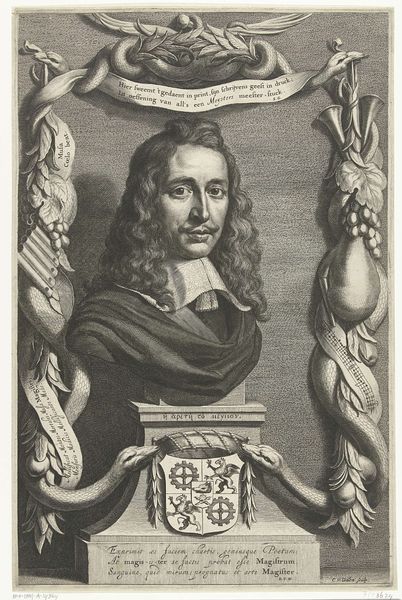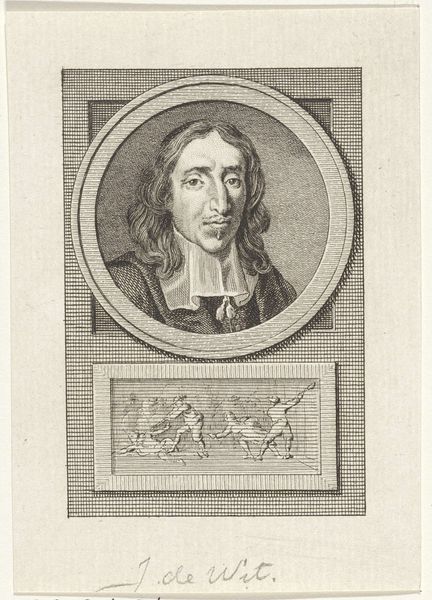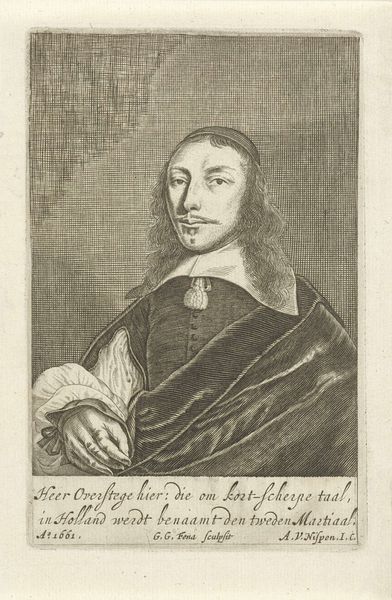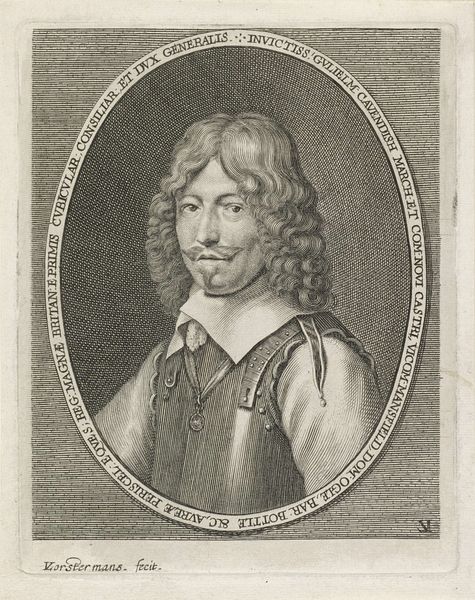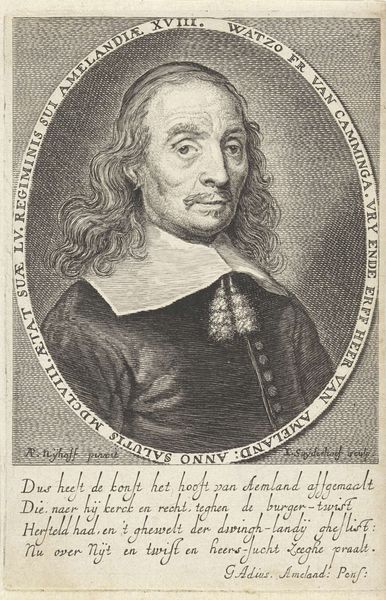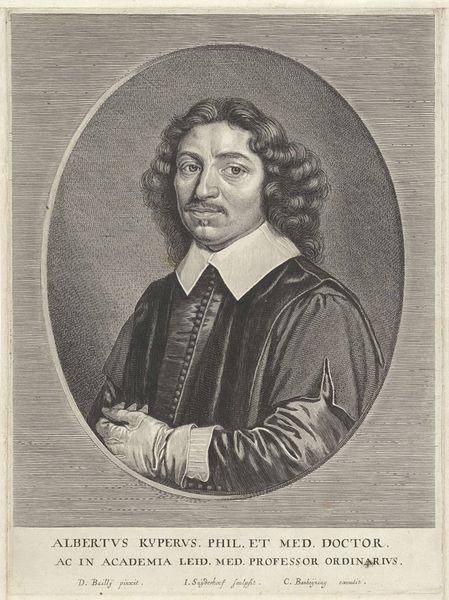
Dimensions: height 173 mm, width 126 mm
Copyright: Rijks Museum: Open Domain
This print portraying the artist Philips Wouwermans was made by Giovanni Battista Cecchi. The loose knot of fabric at Wouwermans' throat is more than a mere fashion statement; it's a symbol of the changing tides of social identity. The cravat, as it was known, emerged from the Croatian mercenaries serving Louis XIII, its casual elegance quickly adopted by the French aristocracy. This simple gesture of tying fabric around the neck evolved from a functional military accessory into a marker of status and sophistication. We can see echoes of this transformation in later artistic depictions of aristocracy. The cravat's journey—from battlefield utility to a symbol of refined taste—illustrates how cultural memory imprints itself onto even the smallest details of our attire. The symbolic weight of the cravat, therefore, carries layers of historical and cultural significance, subtly resonating with viewers across centuries, a reminder of fashion's power to communicate complex social narratives.
Comments
No comments
Be the first to comment and join the conversation on the ultimate creative platform.
